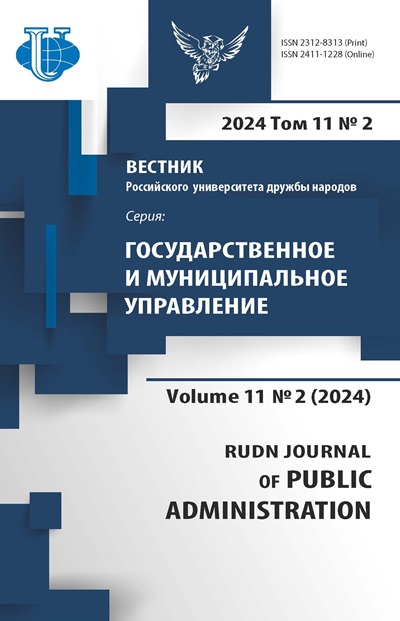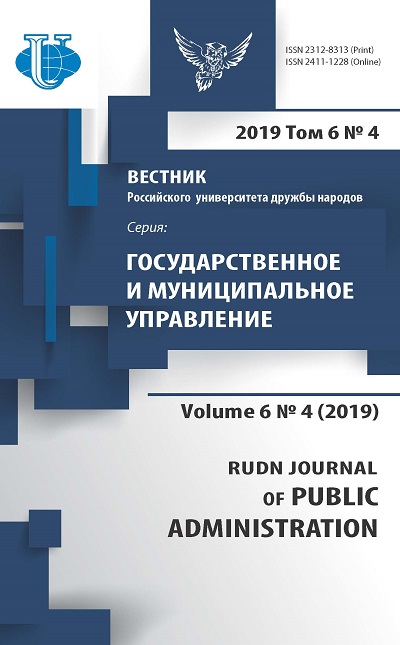Культурная маркировка России на международной арене: испытание мягкой силы (2000-2018)
- Авторы: Кума Ж.К.1
-
Учреждения:
- Российский университет дружбы народов
- Выпуск: Том 6, № 4 (2019)
- Страницы: 356-365
- Раздел: ПУБЛИЧНАЯ ДИПЛОМАТИЯ В СОВРЕМЕННОМ МИРЕ
- URL: https://journals.rudn.ru/public-administration/article/view/23556
- DOI: https://doi.org/10.22363/2312-8313-2019-6-4-356-365
Цитировать
Полный текст
Аннотация
Автор утверждает, что со второй половины 1990-х годов, и особенно с момента вступления В.В. Путина на пост президента, международное подтверждение и признание статуса России как великой державы было возведено в ранг экзистенциального внешнеполитического императива. Восстановление глобального влияния России - одна из составляющих этой политики, проводимой российскими властями. Однако «цветные революции» на постсоветском пространстве, в первую очередь «Оранжевая революция» 2004 года на Украине, заставили российское руководство переосмыслить отдельные императивы внешней политики для того, чтобы спроецировать за рубежом лучший образ России. Данные приоритеты нашли отражение в программных документах во время второго президентского срока В.В. Путина (2004- 2008 гг.). Понятие «мягкой силы» будет институционализировано в Концепции внешней политики Российской Федерации от 12 февраля 2013 года. Данная статья призвана внести вклад в анализ проблем, связанных с культурной переменной во внешней политике Российской Федерации. Автор полагает, что в мировом культурном поле, традиционно контролируемом сильными западными державами, Россия выбрала мягкую силу на основе видения своего особенного пути, своей истории культуры и многочисленных достижений, представляя себя «ответственной» и «примиряющей» державой.
Ключевые слова
Об авторах
Жан Коттен Кума
Российский университет дружбы народов
Email: cottingelin@yahoo.fr
аспирант кафедры сравнительной политологии ул. Миклухо-Маклая, 6, Москва, Россия, 117198
Список литературы
- Pinot A., Reveillard C. (eds.) Russia Yesterday and Today. Cross Perceptions. Paris: L’Harmattan; 2016 (In Fr.).
- Gauchon P., Huissoud J.M. The 100 Words of Geopolitics. Paris: PUF; 2008 (In Fr.).
- Tsygankov A. If Not by Tanks, then by Banks? The Role of Soft Power in Putin’s Foreign Policy. Europe-Asia Studies. 2006; 58; 7: 1079-1099.
- Karaganov S. Russia in Euro-Atlantic Region. Rossiyskaya Gazeta. 24.11.2009 (In Russ.).
- Le Huerou A., Sieca-Kozlowski E. Military Culture and Patriotism of Today's Russia, Paris: Karthala; 2008 (In Fr.).
- Bessière S. China at the Dawn of the Twenty-first Century: The Return of Power? Paris: L'Harmattan; 2005 (In Fr.).
- Dousset M. Vladimir Putin, Ready for Anything for “His” Great Russia. Geopolis Africa. 22.08.2013.
- Sindjoun L. In Search of Cultural Power in National Relations: A Test of Characterization of the Concept and Apprehension of the Phenomenon. Cameroon Journal of International Politics. 2007; 1: 20-21.
- Nye J. The Paradox of American Power: Why the World? Only Superpower Cannot Go It Alone. Oxford: Oxford University Press; 2002.
- Nye J. The American Leadership: When the Rules of the Game Change. Nancy: Presses Universitaires de Nancy; 1992 (In Fr.).
- Tingui A. Moscow and the World: The Ambition of Greatness: An Illusion? Paris: CERI; 2008 (In Fr.).
- Nye J. Soft Power. The Means to Success in World Politics. New York: Public Affairs; 2004.
- Nye J. The Future of Power. New York: Public Affairs; 2011.
- Aker D-A. Managing Brand Equity, Capitalizing on the Value of a Brand Name. New York: The Free Press; 1991.
- Van Ham P. The Rise of the Brand State, the Postmodern Politics of Image and Reputation. Global Policy Forum. 2001.
- Plantey A. Politics Between Nations: Principles of Diplomacy. Paris: Pedone; 1991 (In Fr.).
- Bozonnet J-J. Sport, a Geopolitical Issue. Le Monde Histoire. 08.01.2014 (In Fr.).
- Boniface P. JO Policies. Jean-Claude Gawsewitch Publisher; 15.05.2012 (In Fr.).
- Boniface P. (eds.) The Earth Is Round Like a Balloon: Geopolitics of Football. Paris: Editions du Seuil; 2002 (In Fr.).
- Lucas D. Editorial. Geoeconomics. 2010; 54: 5-6.
- Huntington S. Introduction to International Relations. Paris: Seuil; 1987 (In Fr.).
- Grynszpan E. Russian Soft Power Scores Points. Time. Moscow. 16.06.2016.
- Garbe E. From Stalin to Putin. Paris: Publibook; 2003 (In Fr.).
















